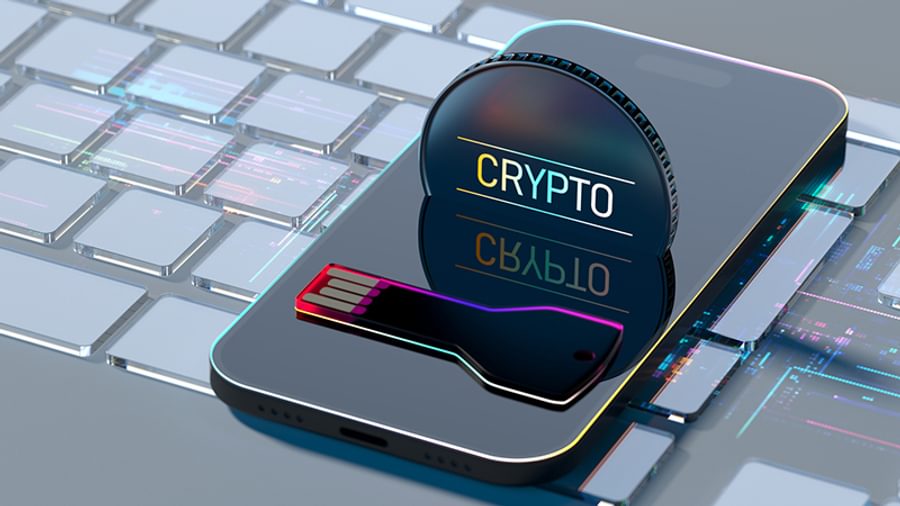
Whether you’re excited about diving into Bitcoin or exploring the vast range of altcoins, understanding the essentials of buying, storing, and protecting your digital assets is crucial. Here we break down the steps to safely purchase your first cryptocurrency, explore the different options for securely storing it, and provide you with practical tips on how to keep your crypto safe from theft or loss.
Editor's Note: This is the second in a "Crypto 101" blog series that offers the basics of crypto and a better understanding of how this technology might shape the future of digital finance. To read the first blog, "The Rise of Cryptocurrency: Exploring the Future of Digital Money," click here.
Navigating the world of cryptocurrency can feel overwhelming, especially for beginners.
Whether you’re excited about diving into Bitcoin or exploring the vast range of altcoins, understanding the essentials of buying, storing, and protecting your digital assets is crucial. In this blog, we’ll break down the steps to safely purchase your first cryptocurrency, explore the different options for securely storing it, and provide you with practical tips on how to keep your crypto safe from theft or loss.
By the end of this post, you’ll be equipped with the knowledge to confidently step into the crypto space and safeguard your investments.
*Please note: This guide is purely informational and should not be taken as investment advice or a recommendation to buy cryptocurrency.
How to Buy Cryptocurrency
The first step is to choose an exchange, which acts like an online shopping platform for digital currencies. In the U.S., popular exchanges include Coinbase and Gemini. Coinbase is known for being user-friendly, making it great for beginners, while Gemini is also simple to navigate and focuses on security. Once you’ve chosen an exchange, you’ll need to create an account. You’ll provide your email address, create a password, and verify your identity. After funding, you’ll choose the cryptocurrency you want to buy. Before completing the purchase, the exchange will show you the price and transaction fees.
Storing Cryptocurrency Safely
Just like with cash, you need to store your cryptocurrency safely. There are two main types of wallets — hot and cold — both of which are like bank accounts for your crypto.
Hot wallets are the online storage option, similar to an online bank account. You can access them easily from your computer or phone, but because they’re connected to the internet, they can be more vulnerable to hacking. However, hot wallets offer quick and easy access. Examples include Coinbase Wallet (which functions like an online banking app for crypto) and MetaMask (for storing Ethereum and other tokens).
Cold wallets are offline storage options, like keeping cash in a fire-proof safe at home instead of an online account. Because they’re not connected to the internet, they’re much safer from hackers. However, they’re less convenient for daily use. If you're planning to hold large amounts of cryptocurrency, cold wallets can be a very effective solution. Examples include hardware wallets like Ledger or Trezor, which store your crypto keys offline, and paper wallets, which are handwritten notes with your private keys.
If you plan on holding your cryptocurrency long-term and don’t need quick access, a cold wallet is the safest option. For smaller amounts or easier access, hot wallets are a good choice.
Tips for Securing Your Crypto
Securing your crypto is crucial. Here are some simple tips to help keep your assets safe:
- Use strong, unique passwords for your crypto accounts.
- Enable two-factor authentication (2FA). This provides an extra layer of security, requiring both your password and a second verification code (usually sent to your phone).
- Back up your wallet’s recovery phrase. If you lose your private keys, you won’t be able to access your crypto. Keep a secure backup, just like you would a spare house key.
- Avoid public Wi-Fi when accessing your crypto accounts. Public networks can be risky. Using a VPN adds an extra layer of security.
- Be cautious of scams. Cryptocurrency is a popular target for scammers; so always verify the legitimacy of websites and offers before interacting with them.
Now that you understand the basics of blockchain, how to buy cryptocurrency, and how to store it securely, you're well on your way to starting your crypto journey. Whether you’re looking to invest in Bitcoin or explore other digital currencies, a solid understanding of these fundamentals is key. Remember, just like any investment, security is crucial — take the time to choose the right wallet and follow best practices to protect your assets.
